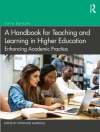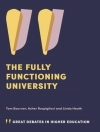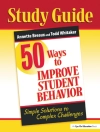This guide to inclusive practice covers contemporary policy issues, perspectives from practice and specialist guidance from across a wide range of common syndromes. Bringing together the important combination of theory, knowledge and practice, each chapter is written by experts from fields within Special and Additional Educational Needs.
This third edition includes new chapters on:
- The current context of SEN current context: in research and practice
- Speech, language and communication
- The role and use of technology in supporting learners with SEND
- Pathological/Extreme Demand Avoidance (PDA/EDA)
- Working together
- Children and Young People’s Perspectives
Providing a solid foundation for understanding and supporting learners with additional needs, this comprehensive text is ideal whether you are a student, teacher or education practitioner.
विषयसूची
Chapter 1: Introduction – Gavin Reid & Lindsay Peer
Part I: Policy, Practice and Provision
Chapter 2: Special and additional support needs in England and Scotland: current dilemmas and solutions – Sheila Riddell, Elisabet Weedon & Neville Harris
Chapter 3: Putting the dyslexic learner at the centre – Janice Wearmouth
Chapter 4: Inclusion and special educational needs: a dialogic inquiry into controversial issues – Artemi Sakellariadis
Chapter 5: The potential impact and influence of the social model of disability – Charles Weedon
Part II: Perspectives from Practice
Chapter 6: Speech, language and communication – Juanita Hurley and Sally Moore
Chapter 7: Auditory Processing Disorder – Tony Sirimanna
Chapter 8: Developmental coordination disorder/ developmental dyspraxia in the context of education – Sally Scott-Roberts & Dr Catherine Purcell
Chapter 9: Vision and learning – John Stevenson
Chapter 10: Literacy: literacy and the training of professionals who teach and assess individuals with literacy difficulties – Margaret Crombie, Julian Brown & Una Lodge
Chapter 11: Mathematics learning difficulties and dyscalculia – Steve Chinn
Chapter 12: The role of technology in supporting young people with Additional and Special Needs – Arran Smith
Chapter 13: Using technology to support learners with additional needs: practical information and advice – Adam Gordon
Part III: Syndromes and the Brain
Chapter 14: Students with Down syndrome in inclusive classrooms: using evidence-based practices – Iva Strnadová & David Evans
Chapter 15: Attention deficit hyperactivity disorder – Fin O′Regan
Chapter 16: Visual and cerebral impairment and mainstream education: beyond mere awareness raising – John Ravenscroft
Chapter 17: Students with hearing loss – Jill Duncan
Chapter 18: Pathological/Extreme Demand Avoidance (PDA/EDA) – Richard Soppitt
Chapter 19: Autism Spectrum Disorder (ASD): Identification, Intervention and Research – Jo-Ann Page
Part IV: Working Together
Chapter 20: Working together: a system working together to serve the child with Special Educational Needs? A critical look at current practice in Irish primary education – Fidelma Healy Eames & Annmarie Meehan
Chapter 21: Parents as partners – Jillian Zocher & Katie Nelson
Chapter 22: Children and Young People’s Perspectives – Jennie Guise, Jenn Clark & Jo-Ann Page
लेखक के बारे में
Dr. Gavin Reid is an international consultant and psychologist with consultancies in Canada, UK, Europe, Middle East, Asia and Australasia. He was Visiting Professor at the University of British Columbia in Vancouver, Canada, in the Department of Education and Counseling Psychology and Special Education in 2007 and 2010.?He is chair of the British Dyslexia Association Accreditation Board and an ambassador for the Helen Arkell Dyslexia Centre in the UK and is a Consultant/Psychologist for the Centre for Child Evaluation and Teaching (CCET) in Kuwait and the Lighthouse Learning Centre in Cairo. He is also a director of the Red Rose School for children with specific learning difficulties in St Annes on Sea, Lancashire, UK. He was formerly senior lecturer in the Department of Educational Studies (formally Department of Special Education), Moray House School of Education, University of Edinburgh, from 1991 to 2007. He has written 34 books on learning, motivation and dyslexia and lectured to thousands of professionals and parents in 75 countries. Some of his books have been published in Polish, Italian, Greek, Arabic, Hebrew, French, Latvian and Slovak. He is an experienced teacher with over ten years’ experience in the classroom and has held external examiner appointments at 20 universities worldwide for Ph D and masters’ courses. He resides in Vancouver and Edinburgh. His email is [email protected] and his website is: www.drgavinreid.com












